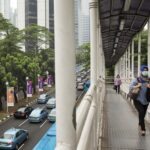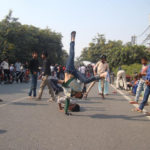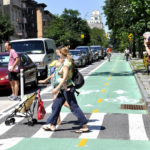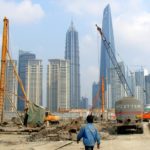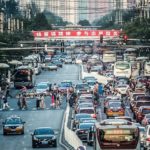Posts tagged with 'emerging economies'
The sheer volume of data collected globally has grown exponentially. But particularly in developing and emerging countries, major gaps in availability, quality and usability of data lead to a lack of significant resources necessary to face complex urban challenges. The ...

Raahgiri Day, the weekly event that closes city streets to cars to celebrate walking, biking, music-making, and socializing, has expanded beyond Gurgaon, India. The New Delhi Municipal Council (NDMC) together with the New Delhi Police Department has decided to stage ...

According to the World Health Organization’s (WHO) Global status report on road safety 2013, only 7% of the world’s population is governed by comprehensive road safety laws. In a world that already sees 1.24 million deaths from traffic crashes each ...

SMART at the University of Michigan is honoring enterprises along with cities and states supporting enterprises that are making the world a better place through innovative sustainable transport. The deadline for entrepreneurs to apply is July 7, 2014. We live ...

Rapidly developing cities worldwide, while diverse, have a number of factors in common. Issues that seem nearly universal are congestion and enormous traffic jams, which have, in some extreme cases, stretched the typical commute into a weeklong sojourn. While cities ...

Few urban policies have been as contentious or as fruitful as congestion pricing. Congestion pricing is a travel demand management policy that charges a fee for vehicles that enter a certain urban area or a certain street during specific periods ...

The idea of “smart cities” – defined as those whose social and technological infrastructure accelerates sustainable economic growth – has captured the attention of city leaders and urban dwellers around the globe. It has also caught the attention of international ...

In developed cities, new mobility options typically only penetrate the transport ecosystem after governing bodies have developed an institutional framework around the new technology. Emerging economies, however, do not always have the regulatory capacity to standardize regulations and create policy ...







